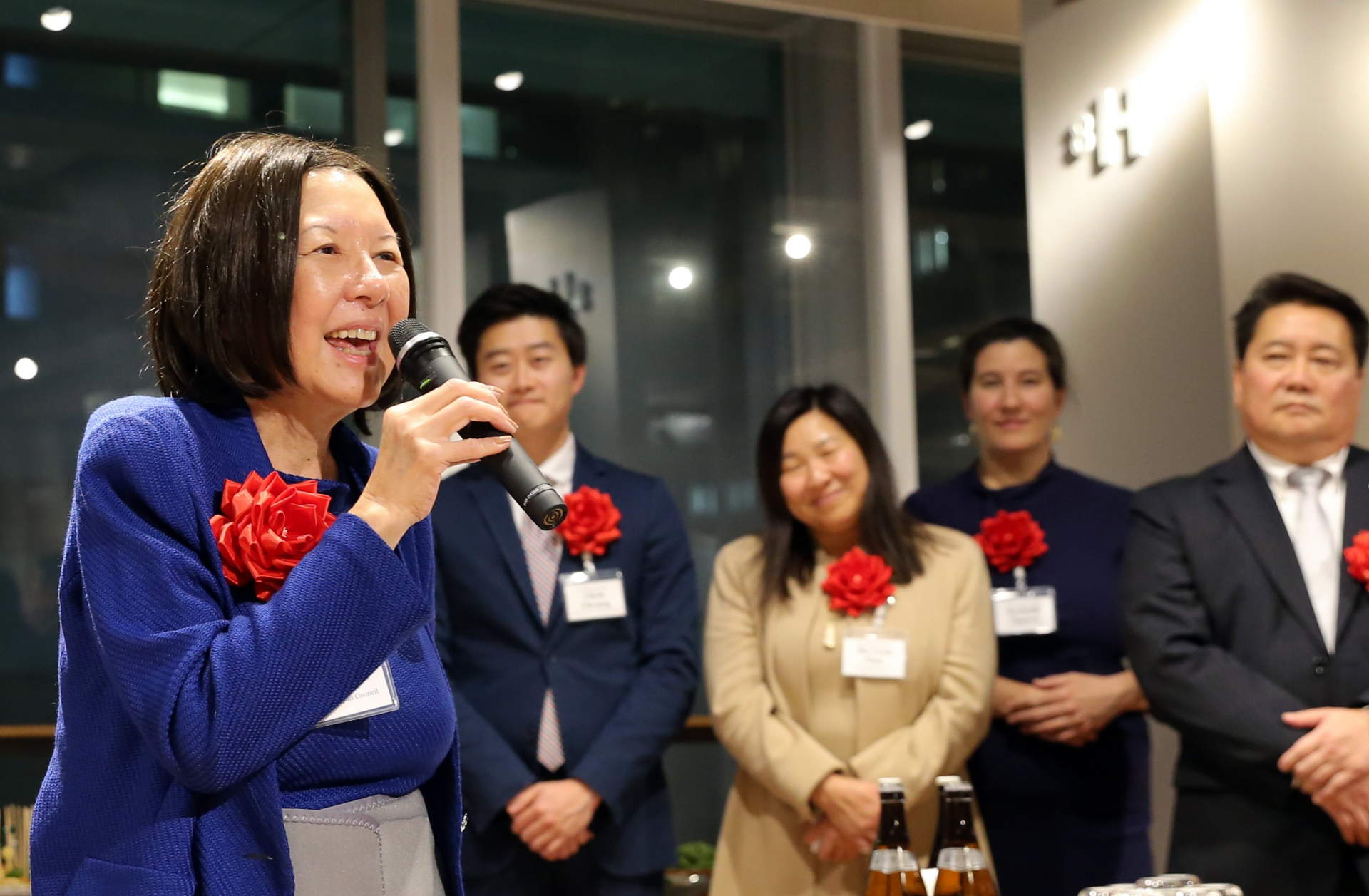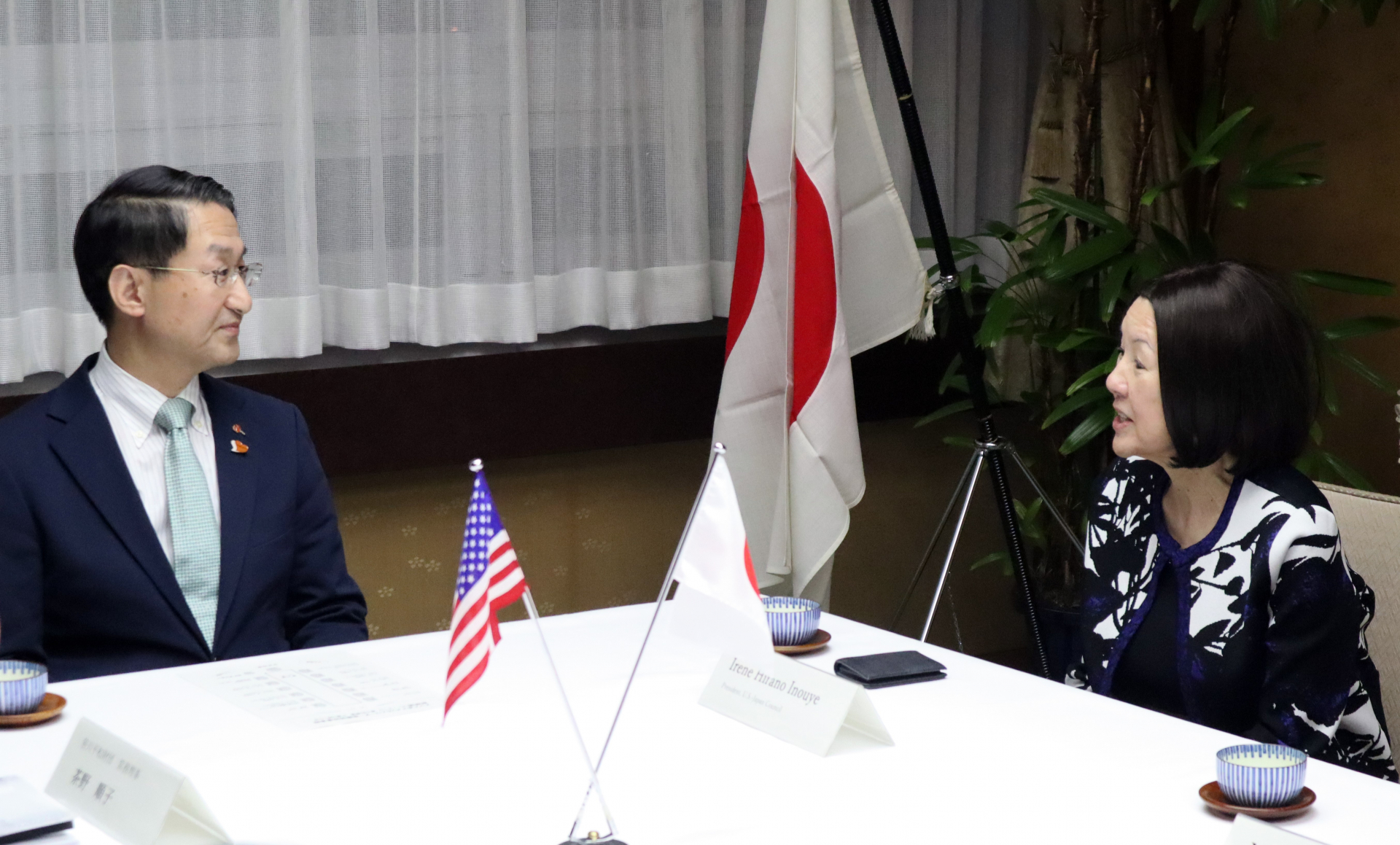The Asian American Leadership Delegation (AALD) program is now in its sixth year. Could you talk about the origins of this program and how it fits into the broader Japan-U.S. relationship?
Ms. Hirano Inouye: The mission of the U.S.-Japan Council is to build and maintain strong people-to-people relationships between the U.S. and Japan. Due to the large amount of mutual dependency and the great potential for mutual benefit, it’s important that the U.S. and Japan preserve this robust relationship, certainly in the areas of security and the economy. At the same time, we are also aware that there are going to be times when the relationship may be challenging. However, we believe that these avenues of communication at various levels should be maintained despite whatever happens on the political level, which is one of the reasons that the U.S.-Japan Council was established over ten years ago.
The AALD program was created because we felt that leaders in Japan did not have many opportunities to meet with leaders of other ethnic communities from the U.S. As a result, I always felt that Japanese leaders didn’t have many connections or relationships to a diverse America. The communities that make up this diversity, including Asian Americans, are what make America unique, and I believe they will be significant leaders at the federal, state, and local levels in the future.
We also felt that focusing on legislators at the state level would be beneficial because many Japanese companies have made investments throughout the U.S., particularly in the Midwest, the South, and other parts of the country. This economic relationship benefits states in particular by bringing jobs and investment to the region, so through the AALD program we are able to tap into this area of common interest regarding developing local markets, building on existing business relationships, and creating opportunities to invest in Japan.
The 2019 visit includes a stop in Tottori Prefecture, which is the least populated prefecture in Japan and is off the beaten path for many U.S. visitors. What are you hoping the delegation will get out of this unique visit?
Ms. Hirano Inouye: We saw the trip to Tottori as a valuable learning opportunity for the state legislators. Some of the members of our delegation come from small states and they're quite interested in learning how Japan has begun to address some challenges associated with aging and access to services, which are becoming pressing issues in some areas of the U.S.
Also, I think that if you just go to the major metropolitan centers like Tokyo, Osaka, or Kyoto, you don’t get a full picture of the diversity of Japan. Visiting a place like Tottori gives people a sense of the richness of Japan and traveling to a more rural area affords one the chance to meet people that have had very different experiences than people who grew up in Tokyo or another major city. I hope that the delegation will have the opportunity to meet people to talk about common issues and common solutions, and that they will gain a better appreciation of what Japan has to offer.

